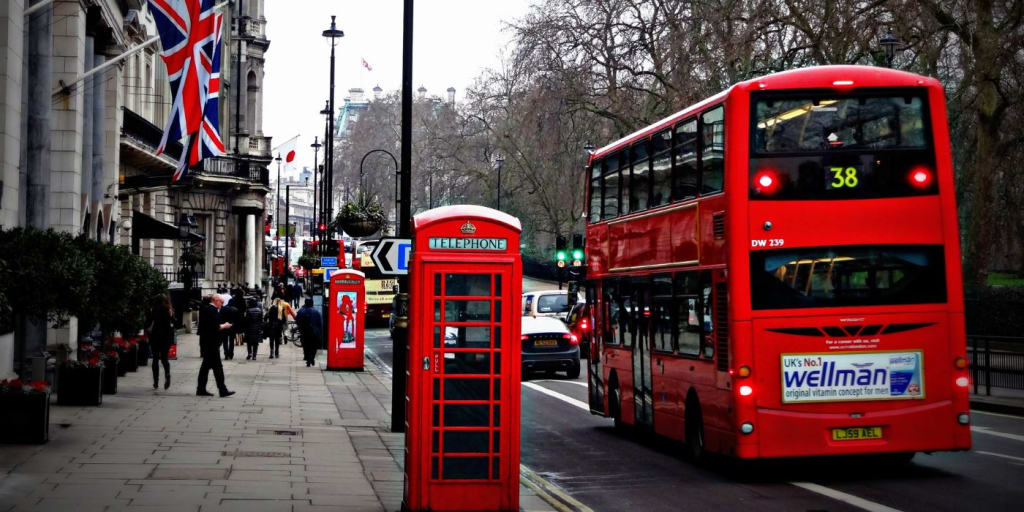
This article is now out of date. Click here for the latest information on Labour’s Autumn Budget
As we look toward the UK Budget 2024 predictions, potential tax increases and spending cuts may be introduced to address the nation’s fiscal challenges. These budgetary decisions could significantly impact local authorities, many of which are already facing financial difficulties.
The UK’s public finances are under strain, with debt-to-GDP reaching levels unseen in 60 years, taxes approaching post-war highs, and a £120 billion deficit. That’s not to mention one in five councils reported as being on the brink of bankruptcy.
As the new Labour government prepares its first budget, scheduled for October 30, 2024, both public sector entities and citizens alike will be watching closely for measures that could affect local services and community engagement initiatives.
What’s Covered in the UK Budget?

The UK Budget is an annual financial statement delivered by the Chancellor of the Exchequer to Parliament and the nation. It typically takes place in Autumn, followed by a much shorter Spring budget that provides an update on the economy. The upcoming Autumn Budget is the Labour Party’s first since being elected to office, and will be announced on the 30th October 2024.
The Autumn statement is the main fiscal event of the year, covering the government’s financial plans — including taxes, spending, and borrowing — for the next 12 months. This blueprint is then audited by the Office for Budget Responsibility, who assess whether the plans are actually accurate and feasible.
Local authorities and councils often watch the Budget with a close eye, because it determines how much money they’ll receive from government grants and be able to raise themselves through local taxes. These decisions have significant implications for the delivery of local services and community initiatives.
UK Budget 2024 Predictions

At the Labour Party Conference in September, the Chancellor Rachel Reeves admitted being in a tricky position — having ruled out a return to austerity while also promising a budget surplus by 2029.
We hate to be gloomy, but even the Prime Minister has declared this Budget will be “painful”.
This time, it seems very likely that taxes will rise in order to pay for some of the investments in infrastructure and public wages. This reflects the key doctrine to Labour’s neo-Keynesian plans for the economy, summarised nicely by Reeves’ mantra that “growth is the challenge and investment is the solution”.
She hopes that the UK economy will improve and these investments pay off, meaning taxes on working people can be lowered by the time the next general election rolls around.
Potential Tax Changes, 2024

During the general election, Labour ran on a promise that they would not increase ‘working taxes’ — meaning Income Tax, VAT, and National Insurance will stay the same. However, bear in mind that the Income Tax threshold and NI will remain frozen until 2026 and 2028, meaning the tax burden will effectively increase with wage growth.
Labour has also ruled out any increases to Corporation Tax, which along with those working taxes mentioned above, accounts for approximately 2/3rds of the government’s annual revenue. So that means the Chancellor will have to get creative with where new tax revenue streams are found.
The Prime Minister’s statement that the “broadest shoulders should bear the heavier burden” suggests that taxes could increase for wealthier individuals in the UK. But what could this look like in practice?
UK budget 2024 predictions include Labour raising several taxes for additional revenue:
- Council Tax: Giving local authorities the power to raise higher taxes seems like an obvious choice given the precarious position of many councils. The House of Commons Scrutiny Unit forecasts it will form 56% of councils’ core spending power in 2024/25.
- Capital Gains Tax (CGT): Labour’s position on CGT was absent from its manifesto, leading some to speculate whether they’ll increase it to align with standard income tax rates. Removing the capital gains uplift on death is another potential reform backed by tax experts to raise additional revenue.
- Inheritance Tax Changes: Labour hasn’t ruled out raising the inheritance tax. Labour’s manifesto mentions ending the use of offshore trusts to avoid inheritance tax, and it’s speculated they may cap Business Property Relief (BPR) following some kite-flying in the media.
- Closing the ‘non-dom’ loophole: At the last election, both Labour and the Conservative Partypromised to scrap the non-dom rules for people who claim residence yet pay taxes outside of the UK. Labour will end the regime in April 2025 and hope this could raise up to £1 billion in revenue.
- Pensions Tax: Labour could target pensions by removing the 25% tax-free allowance on withdrawals, capping annual pension contributions, or limiting tax relief on contributions to the standard income tax rate.
- Windfall Tax on Oil and Gas: Labour intends to increase the Energy Profits Levy from 75% to 78% and extend it until 2030.
- Wealth Tax: While a one-off payment from wealthy individuals could raise a lot of money in the short-term, this rapid shifting of the Overton window could spook investors. For instance, Ed Miliband’s proposed Mansion Tax in 2015 was criticised for targeting the ‘asset-rich but cash-poor’ class. This one seems unlikely, but don’t write it off!
New Government Spending Predictions

Tax policies will play a critical role in balancing the 2024 UK Budget, but the other side of the coin is how the government plans to spend these newly-raised funds. After all, this is how they intend to grow the economy through investment!
Let’s take a look at some of the spending figures and schemes likely to be included in the Autumn Budget:
- National Wealth Fund: Labour’s National Wealth Fund will invest £7.3 billion over the next five years in tech and infrastructure, including ports, gigafactories, clean steel, and carbon capture. The fund is designed as a public-private partnership, aiming to attract three times as much private investment to boost the UK’s industrial future and green economy.
- GB Energy: Another flagship Labour policy, GB Energy will be a publicly-owned green power company with an initial investment of £8.3 billion.
- Public Sector Wage Increases: Labour has negotiated pay rises up to 6% for millions of public sector workers, including industries like the NHS, education, and transport. These are expected to cost more than £10 billion per year.
- Pensions Increase: All major parties promised to maintain the ‘triple lock’ on pension payments, which will rise by £460 per person from April 2025. This works out at about £5 billion extra per year at the national scale.
- Council Grants Increases: Labour has earmarked an extra £745 million per year to local public services, which falls short of the Local Government Association’s report that councils face a £6.2 billion funding gap. However, it’s hoped that their multi-year funding settlements will reduce some of the strain by eliminating the need for drawn-out bidding practices.
Spending Cuts Predictions
The government is also likely to look for cost-cutting measures to ensure public spending is effective. Here are some spending cuts that have already been confirmed:
- Departmental Cuts: Broadly speaking, Labour intends to streamline budgets across gov departments, including a 2% cut to administration costs and greatly-reduced use of private sector consultants. It’s hoped this will save £3.1 billion per year.
- Rwanda Deportation Scheme: Labour scrapped the Tories’ illegal migration deterrent upon taking office, which is projected to save hundreds of millions in the coming years.
- Road and Rail Building Cancellations: Some infrastructure projects like the Stonehenge tunnel and the ‘Restoring your Railways’ programme have been scrapped. However, the specifics are still in the trial balloon phase, and other projects like the HS2 Euston terminus may be revived.
- Winter Fuel Payments: Almost 10 million pensioners will lose their winter fuel payments this year as the system moves from a universal to a means-tested scheme. Labour hopes this will free up £1.4 billion to spend elsewhere in the economy.
How Labour May Redefine Debt and Spending

You may have seen a lot of noise in the headlines about how the previous Conservative government covered up a £22 billion “black hole” in the public finances, which Labour only brought into the light upon taking office.
We’re not here to take sides, but the reality of government accounting is never clear-cut, and politicians of all stripes understand that. In fact, it’s likely that Labour will opt to subtly redraw the lines themselves,by adjusting which types of spending and debt are subject to certain rules.
The Institute for Fiscal Studies predicts the 2024 budget may strip out components from its measure of debt to ‘soften’ the headline figure seen by investors and citizens. One potential target is the impact of the Bank of England’s activities.
Losses incurred through quantitative easing could be separated from traditional debt, providing the government more budgetary wiggle room. Likewise, the debt taken on by Labour’s National Wealth Fund (essentially a publicly-owned bank), may be excluded from the balance sheet.
The lines here are blurry, and it could lead to renewed calls for transparency in government fiscal reporting — something local authorities are required to do for all expenditure over £500.
The Role of Citizens’ Assemblies in Shaping Local Fiscal Policy

A Citizen’s Assembly is a group of people selected at random to discuss and make recommendations on complex policy or topic area. They usually consist of around 50 to 150 people, which aims to create a representative sample of the general public. You can think of it like a jury, except its participants are deliberating on an issue or policy as opposed to a criminal case.
Within the UK Budget 2024, citizens’ assemblies can play a crucial role in shaping local authority spending. They can:
- Provide a forum to discuss local spending prioritisation
- Address potential cuts and areas of greatest need
- Develop new solutions by bringing together unique and diverse perspectives
- Offer a platform for local authorities to explain budget citizens directly and transparently
Local authorities have a statutory duty to achieve ‘best value’ in service delivery, which can only be achieved if the voices of residents are listened to. Citizens advisory panels are a great way to make the most of local knowledge and ensure every penny of local budgets are spent wisely.
How Participatory Budgeting Can Address Constraints at a Local Level

Local authorities should actively encourage citizens to voice their thoughts during democratic consultation processes, or better yet, invite them to make decisions on local spending for themselves.
That’s where tools that allow citizens to experience participatory budgeting for themselves can help aid local authorities after the 2024 UK Budget is released. These are instrumental in providing perspective on budget constraints and improved, informed decision-making.
Tools like Simulator by Delib let local people act as if they are councillors for the day — swapping and changing budgets for different services to find a balance that delivers best value. They get to weigh up the tough choices, see other perspectives, and leave reasoned judgments that are invaluable to decision-makers in local government.
As Citizens Assemblies become more popular and influential in policymaking, government bodies will need tools to run these processes online. Dialogue by Delib serves as your digital shared space to bring citizens and government together. It’s a place where participators can talk securely to one another, easily navigate through resources, and leave well-informed responses on the matter at stake.
When the government acts on community input, public services become more responsive to public needs. Not only does this cut down on unnecessary wastage and consultant fees, it also helps to restore trust in local democracy — helping everyone to build a better future for their area.